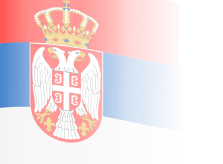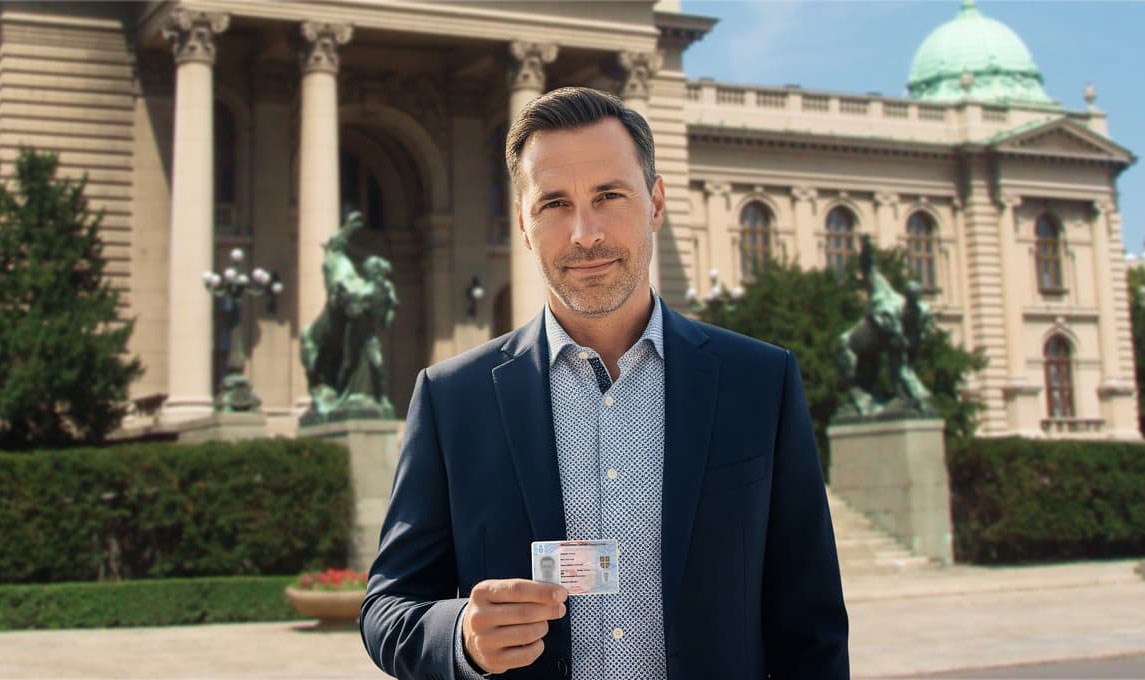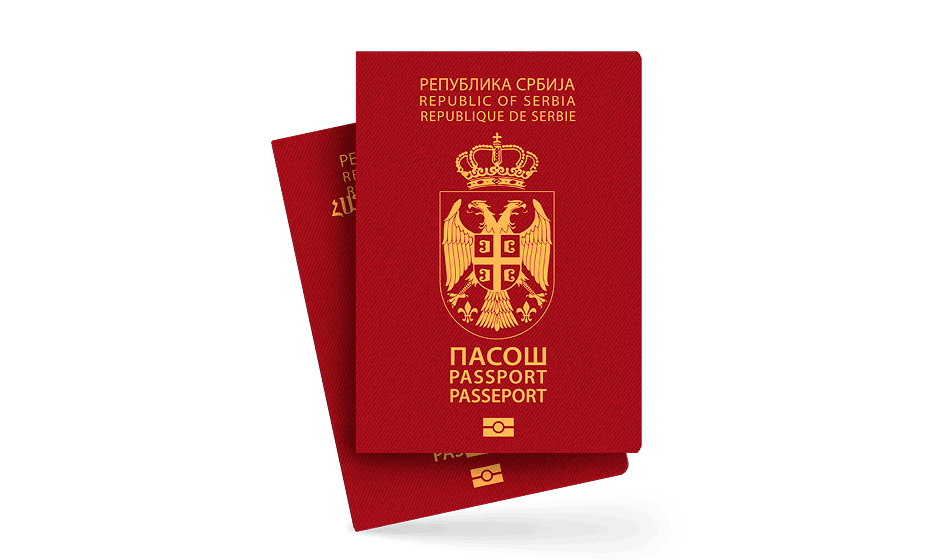Opening a business in Serbia is one of the fastest and most affordable ways to obtain a residence permit. Since 2012, the country has been a candidate for accession to the European Union, which would open a visa-free regime with Commonwealth countries and allow you to work and reside in any EU country. Business owners can enjoy tax benefits and expand their sales market.
Investors who decide to establish or purchase a company in Serbia are attracted by the country’s security, affordable living costs, transparent tax system, and developing economy.
A Serbian residence permit for entrepreneurs allows you to develop your business in a favorable tax environment within the European market. Contact our specialists to learn more about terms and conditions and to receive further assistance.
Legal forms of Serbian business activities
According to Serbian law, businesses in the Republic may be structured in the following ways:
- Partnership: with at least two members who are legal entities or individuals and who are not citizens or tax residents of Serbia. There are no requirements for authorized capital. The members are equally responsible for the company’s operations, and the addition of members is permitted with the consent of all partners.
- Limited partnership: established by two or more partners who are individuals. The minimum capital requirement is flexible, and the general partner is responsible for financial operations. The other partners are liable according to their share contributions.
- Limited liability company (LLC): a Serbian company with up to 50 members who can contribute money, fixed assets, or property. A limited liability company may conduct international activities with a minimum authorized capital of EUR 5.
- Joint-stock company: be open or closed and have no more than 100 participants. It is permitted to have one or more founders. The minimum capital for a CJSC is EUR 10,000 and for a JSC is EUR 25,000. The value of two shares of a company cannot be less than 5 EUR. An open joint-stock company must have a board of directors, while a closed joint-stock company may have only one director.
- Sole proprietorship: a form of doing business where the founder is responsible for the company with their own funds. The minimum tax payable for the entrepreneur is approximately EUR 80 per month.
The appropriate business structure depends on the type of activity, however, foreigners most often choose a limited liability company. An LLC can do business outside Serbia, for example in the European Union, and is entitled to tax benefits. Joint ventures are also popular in the country, with their activities controlled by the Law on Protection of Competition.
Requirements for investors and company registration procedure for foreigners
The process of opening a company and conducting business in Serbia is regulated by the Foreign Investment Law and the Commercial Enterprises Law. Both legal entities and individuals may own a company. Foreign investors have the same rights as Serbian citizens. The basic requirements for entrepreneurship are:
- Information about the owner. For an individual, a domestic and foreign passport is required; for a legal entity, a certificate of incorporation from the home country indicating the company’s name, owners, and registration number is required. These documents must have an apostille and be translated into Serbian;
- Information about the appointed director. In addition to identity documents, a certificate of residence in the territory of the Republic of Serbia will be required;
- Confirmation and overview of the company’s activities in Serbia.
Different ways to register a business in Serbia
The Serbian government promotes the growth of small and medium-sized businesses in the country by providing favorable conditions for entrepreneurship, such as beneficial tax policies.
Relocation of an existing company
The relocation of businesses to Serbia is especially popular among IT specialists, coaches, and programmers. In order to relocate a company, you need to:
- Submit an application to the Agency of Commercial Registers;
- Go through the company registration procedure;
- Open a bank account.
Registration requires copies of the following documents, translated into Serbian and notarized:
- Certificate of incorporation of the company;
- Details of the appointed director;
- Type of activity on the territory of Serbia.
Free economic zones in the Republic offer tax benefits to companies involved in computer technology, making such businesses more profitable. Relocating company employees, including directors, to Serbia allows the company to receive a refund from the Republic of up to 70% of the payroll tax paid. Business registration takes about 7 days, and relocation is possible with owner relocation or without.
Residence permit in Serbia leads to the following benefits:
- The opportunity to work anywhere in Europe;
- The opportunity to open a business with low taxes;
- Residence permit of an EU candidate country;
- Social benefits and support from the government.

Leave an application and get a consultation specialist
Opening of a new company
Registration is carried out by the Commercial Register Agency. To successfully complete the procedure, the following documents must be prepared and submitted:
- Notarized articles of association of the company;
- Copies of the passports of all founders or registration extracts for legal entities;
- A certificate confirming the company’s legal address;
- Information on the company’s activities;
- A bank statement showing the deposit of the initial capital and the opening of an account;
- Power of attorney for a representative if the registration is done by someone other than the company owner.
Buying a ready-made business
According to the Vienna Convention, purchasing an operating, ready-made business in Serbia can be done directly or through a sales agent. Notaries or lawyers verify the legality of the enterprise by reviewing documents. When a business is sold by agreement of the parties, ownership of the equipment, premises, and staff is transferred. This allows you to reduce financial risks and continue operating the existing business. To find a good match, check out flagma-rs.com, kupujemprodajem.com, and bizquest.com.
There are four steps to buying an existing business:
- Selecting the business and verifying the documentation;
- Finalizing the purchase and sale agreement;
- Registering the change of ownership with the Registry;
- Opening a bank account.
The formalization of the company purchase transaction usually takes one to two days. After that, the owner needs to register the company in their own name.

Opening of a new company
To start a new business, you need to:
- Come up with a name and determine the structure and size of the authorized capital. The business can be a joint stock company, a limited liability company, a partnership, or a sole proprietorship. The company name should be unique and not include abbreviations that make it similar to other names.
- Draw up a charter for an LLC and have it certified by a public notary, court, or municipality. The document should spell out all the basic information about the company’s internal rules and activities.
- Deposit the authorized initial capital into the company’s bank account. You can open the account at any bank; the size of the deposit depends on the chosen business ownership form. After making the deposit, obtain a document confirming the financial transaction.
- Submit the package of documents to the SBRA (Business Registration Agency). The founder or authorized person may submit the application in person, via mail, or by uploading it to the SBRA website. Filing must be completed within 15 days of the certification date of the company’s Articles of Association.
- Obtain a company registration number. The SBRA reviews the submitted documents and, if approved, assigns a registration number. Depending on the company’s area of operation, a VAT and insurance number may be issued simultaneously. A rejection may be issued if the documents are not executed correctly or if the information provided is incomplete. The applicant has one month to correct the mistakes or provide the missing information.
Business ideas in Serbia
Businessmen find the country interesting because of its favorable attitude toward foreigners, its favorable geographical location, its affordable cost of living, and its stable economy. Serbia has signed the Convention on the Double Taxation with 60 countries. Serbia is home to businesses owned by people from different countries, especially Europe and Asia. The most popular opportunities for business projects are:
- Food service establishments. After the pandemic, the restaurant business is returning to its previous growth rates. To start a project like this in Serbia, you will need at least EUR 4,000. The payback period for a café or restaurant is 1-3 months.
- Grocery stores. Retail trade pays off faster and is more profitable when it comes to opening large supermarkets. Investments and payback periods depend on the planned assortment and desired profit.
- Vehicle repair services. As in many other countries, this industry is always in demand in Serbia. Capital investments depend on the size of the business and the purchase of necessary inventory and tools. The average payback period is offset by constant customer flow.
- Service-based businesses. Massage and spa salons, as well as hair and beauty salons, are gaining popularity. Investment depends on the size of the enterprise and ranges from EUR 3,000, with a payback period of 3 to 6 months.
- Car tire recycling. Serbia provides special subsidies of about EUR 0.17 per kilogram of processed raw materials for those who have chosen this type of activity. The Republic plans to increase the number of enterprises given that the required processing volume is more than 50 tons of tires per year.
- Strawberry farming. Industrial or private greenhouses and farms typically pay off in 2-3 months. Initial investments start at EUR 30,000, and the monthly profit can reach EUR 3,500. The price of strawberries is constantly increasing; in 2022, the cost was approximately EUR 6 per kilogram.
- Opening a hotel/Hospitality business. After quarantine restrictions in recent years, Serbia’s tourism sector is returning to its previous pace of development. Opening a small hotel requires an investment of at least EUR 65,000, and it may not pay off quickly, but it will be a promising investment.
How much it costs to open a company in Serbia?
The cost of starting a business on the territory of the Serbian Republic depends on the form of the company, the number of founders and the authorized capital. Usually the costs start from EUR 300 for registration, drawing up documents, obtaining a stamp and accounting support. The size of the required authorized capital: for LLC – EUR 5, CJSC – EUR 10 000, OJSC – EUR 25 000, for limited liability companies and sole proprietorships there is no fixed amount.
| Cost item | Estimated price, EUR € |
|---|---|
| Notary, accounting and legal services | 300–400 |
| Business registration | 42 |
| Registration and certification of company statutes | 10 |
| Name, legal address, and shares of participants assignment | From 10 to 85 |
| Authorized capital | From 1 to 25 000 |
Unique aspects of doing business
To encourage investment, the country has developed a clear tax regime and provides subsidies and incentives. The reasons for the increasing demand among foreigners to do business in the country are security and a rapidly developing economy with the possibility of entering the international market. Fast and easy registration allows companies to start a business in a short period of time.
Bank account opening
Opening a corporate account is a mandatory step for registering any type of company in Serbia. To open a corporate account, you will need the passports of the founders, the articles of association, and the certificates of legal address and residence of the owners. The list of required documents may vary from bank to bank.
There are 21 banks in the country where clients can open accounts in any currency. All deposits are insured by default, as the banking system is aligned with European standards. Electronic banking is also available with English-language support. Popular banks worthy of mention include:
- Societe Generale Srbija was established in 1991. Today, it has 91 branches and is predominantly foreign-owned;
- UniCredit Bank Serbia is part of an international banking group that also provides online banking services;
- NLB Komercijalna Banka offers services to small- and medium-sized business owners and has the largest ATM network in the country;
- Banca Intesa has been on the market for over 30 years and currently attracts customers with high deposit rates.
Business taxation
Taxes are regulated by law, and local tax offices control their timely payment. In Serbia, the tax assessment reporting period is one year. The main taxes in the country for legal entities and individuals are:
- Income tax. The basic rate is 14%. Non-residents pay tax on profits earned within the country’s borders, while investments in fixed assets are not subject to taxation.
- Excise tax. This tax is paid by enterprises that produce or import tobacco products, alcohol, petroleum products, or coffee. The rate for each product is different. Luxury goods are taxed from 20% to 30%.
- Retail sales tax. The tax rate is 20% to calculate the total value of goods sold to the end consumer. Certain goods are exempt from taxation, such as bread, dairy products, and seeds.
- Tax on services. Companies in Serbia that provide insurance, medical, or travel services pay a 12% tax on the total value of services rendered.
- Tax on financial transactions. All transfers, barter, and clearing payments are subject to a 0.3% tax. Payments for salaries, scholarships, and pensions are not included.
- In Serbia, the value-added tax is 20%, with social goods having a preferential rate of 10%.
- Income tax. Individuals pay a 14% tax on their income. Employers make additional contributions.
Regardless of their status, all legal entities and individuals pay real estate tax (0.4% or 0.25% of the appraised value). For donations, the tax is between 3% and 5% of the inheritance or gifted item amount. For the transfer of property rights, the tax is 5% of the market value.
Accounting
According to the Law on Accounting, all legal entities conducting business in Serbia must submit an annual financial report. The first tax return must be submitted within 15 days of business registration. Failure to submit reports on time may result in fines and revocation of the issued number. Failure to submit reports may also result in the company being shut down.
Residence permit and Serbian citizenship through starting a business
Any foreign citizen who opens and runs a business in the Republic of Serbia has the right to apply for a Serbian residence permit. A business visa is issued to individuals over the age of 18 who have established a business in Serbia. The visa is valid for up to 180 days (with the option to extend).
Applications for temporary residence permits are submitted to regional police stations or the Office for Foreigners in Belgrade. The processing period is up to 30 days. If approved, the business residence permit is issued for up to one year and can be extended for the duration of the company’s activity. After five years of residence, it is possible to obtain a permanent residence permit (boravac), and after three more years, citizenship.
Professional assistance in translation and starting a business in Serbia

Analyzing the reasons for refusal helps avoid issues with the dossier and speeds up the business registration process along with obtaining a residence permit. Migration specialists can help draw up an error-free package of documents, translate and notarize certificates, as well as accompany you throughout the entire application process.















